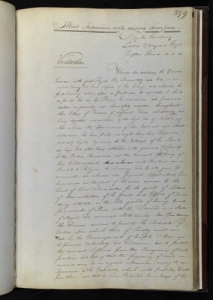By: Andrew Kilpinen
In an unpublished opinion today, the 4th Circuit affirmed the district court’s judgment in MidAtlantic Inter. Inc., v. AGC Flat Glass North America, Inc. The Court concluded that the district court correctly interpreted the contract at issue, appropriately shifted the burden of proof, and provided a fair trial.
In 2011, MidAtlantic International, Inc. (“MicAtlantic”) took an order from AGC Flat Glass North American, Inc. (“AGC”) for a shipment of dolomite. The contract included a “take-or-pay” clause – meaning that AGC was required to purchase the dolomite or pay a pre-determined fee akin to a liquidated damage. AGC argued at trial that the “take-or-pay” clause was not in effect for the order in question. MidAtlantic won a jury award of $902,106.22 against AGC for breach of contract.
The “Take-or-Pay” Clause Was Ambiguous and The Evidence Supported The Trial Court’s Decision That The Clause Was In Effect.
Parol evidence was appropriately admitted to interpret the “take-or-pay” clause because the clause was ambiguous. Evidence at trial showed that AGC’s employees manifested an understanding that the “take-or-pay” clause was in effect whenever an order of dolomite was ordered. The Court upheld the district court’s finding that this was the understanding of both parties.
The District Court Did Not Abuse Its Discretion In Shifting The Burden of Proof.
AGC argued on appeal that MidAtlantic should have been required to prove to the jury that the contract, including the “take-or-pay” clause, was enforceable when the order was made. The 4th Circuit affirmed the district court’s jury instructions that simply required MidAtlantic to prove that the order for dolomite was made because both parties understood the clause to be triggered when the order was placed.
Court Took Appropriate Measures To Ensure That Jury Was Not Prejudiced After Judge Held AGC Counsel In Contempt.
Finally, AGC argued on appeal that the jury was prejudiced against AGC because the judge held AGC counsel in contempt in front of the jury. The 4th Circuit ruled that the district court took necessary steps to ensure against any inference that the judge favored MidAtlantic: the judge explained immediately to the jury why AGC counsel was held in contempt and repeatedly reminded the jury that it’s remarks and rebukes were not an indication of support for either side.






